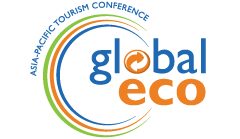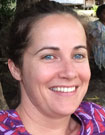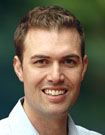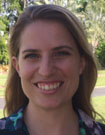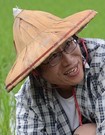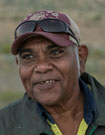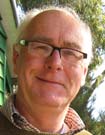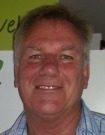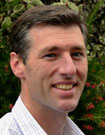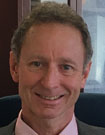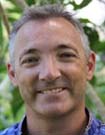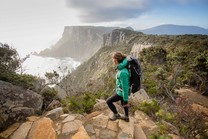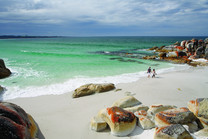Concurrent Speakers 2016
Quick Links
- Cherise Addinsall, Southern Cross University, Lismore
- Adrian Bold, Mount Wellington Cableway Company
- Ralph Bottrill, Mineral Resources Tasmania
- Leonie Bowles, Ecotourism Australia
- Alan Briggs, Murdoch University
- Dr. Yung-Song Chen, I-Lan University, Taiwan Ecotourism Association (TEA)
- Peter Cochrane, Ecotourism Australia
- Nikolett Csorvasi, Eötvös Loránd University
- Dr. Matt Curnock, Great Barrier Reef Marine Park Authority
- Dr. Claire Ellis, Claire Ellis Consulting
- Melanie Grevis-James, Our Planet Travel
- Ted Hall, Luridgii Tours, East Kimberley WA
- John Hamilton, The Tasmanian Nature Company
- Rod Hillman, Ecotourism Australia
- Li-Yi Huang, Taiwan Ecotourism Association
- John Huggins, IBA Tourism Asset Management
- Michael Johnson, Moonlit Sanctuary Wildlife Conservation Park
- Ian Johnstone, The Maria Island Walk
- David Lake, South Australian Tourism Commission
- Fiona McKenzie, Superpod Pty Ltd
- Jason Mundy, Parks Australia
- Neal Muller, Department of Tourism, Major Events, Small Business and the Commonwealth Games
- Dr. Nam Nguyen, Malik Institute
- Angus M Robinson, Leisure Solutions® and Geological Society of Australia
- Hilary Schofield, Parks Australia
- Carl Solomon, Destination Marketing Store
- Penny Spoelder, TRC Tourism
- Jerry Spooner, Vanuatu Department of Tourism
- Alexander Stathakis, Conversio Pty Ltd
- Chris Thomas, Department of Environment, Water and Natural Resources
- Justine Thompson, Ecoline / TreeTops
- Patricia Wilkinson, NSW National Parks and Wildlife Service
Hilary Schofield |
|

| Partnership Opportunities
Abstract Biography
|
Alexander Stathakis |
|
 
| Tourism in a Low-Carbon Economy - Adjusting to a Carbon-Constrained Future
Abstract Biography
|
Jerry Spooner |
|
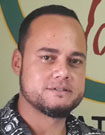 
| Biography Jerry Spooner is the Principle Accreditation Officer for the Vanuatu Department of Tourism Who is in charge of the Vanuatu Tourism Accreditation Program. Jerry Has worked with the Vanuatu Tourism Government since late 2012 which from then has developed Vanuatu’s Tourism Accreditation Program. His working relationship with the Eco Tourism Australia team started in early 2015 resulting in the contracting of Eco Tourism Australia with the assistance of the New Zealand Government under the Vanuatu Strategic Tourism Action Plan to assist in developing an Operational Plan to execute the Program developed and also the next program is to introduce Eco Tourism Certification in Vanuatu, an understanding agreement between Eco Tourism Australia and the Vanuatu Government through an MOU. The Establishing of a Sustainable Tourism Sector Standards and also the introducing of an Eco Certification Program suitable for the Pacific Island nations is his big aspiration.
|
Chris Thomas |
|
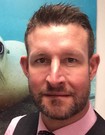  |
Nature Like Nowhere Else, Activating Nature-Based Tourism in South Australia Abstract Tourism in South Australia currently employs 32,000 people and generates approximately $5.4 billion per annum for the South Australian economy. But we plan to grow this to $8 billion and 41,000 jobs by 2020. Nature-based tourism will be an important part of this. By 2020 nature-based tourism businesses will have created 1,000 new jobs and inject $350 million into the State economy every year. The South Australian Tourism Commission has collaborated with the Department of Environment, Water and Natural Resources in developing a Nature-based Tourism Strategy. The Strategy, called ‘Nature like nowhere else, Activating nature-based Tourism in South Australia’ outlines the State Government’s vision and actions to make South Australia a world leader in nature-based tourism, while supporting the ongoing conservation of our State’s natural and cultural heritage. The Strategy, launched in February this year, was prepared with valuable advice from the tourism industry, Traditional Owners, Local Government, Non-Government Organisations, Friends of Parks and interested community members. The presentation will provide an overview of the Strategy, including the four key themes (and related actions) where there is opportunity to further develop experiences that are sustainable, have potential for growth and have proven demand:
Chris imigrated to Australia from the UK in 1993 with an honours degree in Marine Geography and a passion for the outdoors. Chris spend his first 10 years working for the Great Barrier Reef Marine Park Authority as the Director of Togurosm and Recreation before moving to South Australia in 2004 to help set up a network of marine parks. Chris is currently the State Manager for Marine Parks and Nature-based Tourism at the Department of Environment, Water and Natural Resources.
|
Justine Thompson |
|

| Maximising the Potential of a Site with Sustainable Initiatives
Abstract Biography
|
Patricia Wilkinson |
|
 
| Values or Value - An Innovative Approach to Marketing Our National Parks Abstract Biography
|
